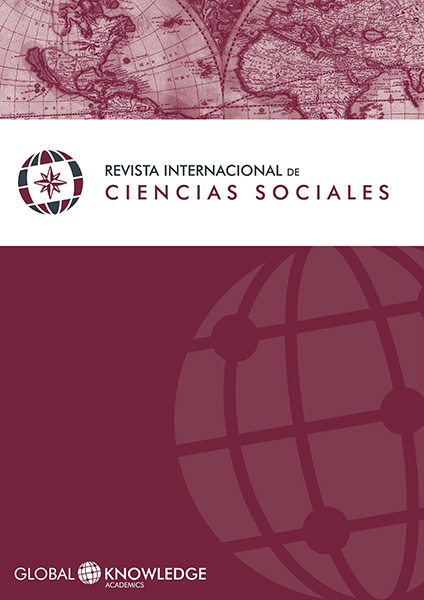Construction of the Sense of Reality in the Child From the Playful Character at the Point of Inter-Relationship With the Object
DOI:
https://doi.org/10.37467/gka-revsocial.v2.1231Keywords:
Understanding of the Sense of Reality, Cognitive Representations, Yoica Identity, Game, Intersubjective Relationship Child-ObjectsAbstract
From different theoretical perspectives, primarily from cognitive-developmental psychology and systemicfunctionalist currents, the infant stage has been regarded as one of the most characteristic manifestations of human life, where the game is considered fundamental, and it supports the possibilities of constructing senses of reality in the child. Both the processes of representing the world as socialization models are patented in the game at this stage, which are combined with the signed interaction between the child and objects, giving rise to symbolic thought and the formation of identity processes. The child, through the game, gets closer to the pleasure and enjoyment of free time, to the suspension of social determinism which is already confined and to the freedom of choice of its being possible.
Downloads
Global Statistics ℹ️
|
1203
Views
|
5135
Downloads
|
|
6338
Total
|
|
References
Amar, J. y Abello R. (1998). El niño y su comprensión del sentido de la realidad. Barranquilla: Uninorte.
Beard, R. (1971). Psicología evolutiva de Piaget. Buenos Aires: Kapelusz.
Berger, P. y Luckmann, T. (1986). La construcción social de la realidad. Buenos Aires: Amorrortu.
Bourdieu, P. (1988). La distinción. Criterio y bases sociales del gusto. Madrid: Taurus.
Bowlby, J. (1993). El vínculo afectivo. Barcelona: Paidós.
Deleuze, G. (1989). Lógica del sentido, trad. De M. Morey. Buenos Aires: Paidós.
Douglas, M. (1973). Pureza y Peligro. Un análisis de los conceptos de contaminación y tabú. Madrid: Siglo Veintiuno.
Eco, U. (2000). Tratado de Semiótica General. Barcelona: Lumen.
Eisenstadt, S. N. (2001). Modernización. Movimientos de protesta y cambio social. Buenos Aires: Amorrortu.
Erikson, E. (1993). Infancia y Sociedad. Buenos Aires: Hormé, SA.
Flecha, R. y Tortajada, I. (1999). Retos y salidas educativas en la entrada del siglo XXI. Los retos del futuro inmediato. Barcelona: Biblioteca de aula.
Godelier, M. (2000). Cuerpo, parentesco y poder. Perspectivas antropológicas y críticas. Quito: ABDA-YALA.
González, A., et al. (2006). Psicología del Desarrollo. Teorías y Prácticas. Buenos Aires: Aljibe.
Goleman, D. (1996). La inteligencia emocional. Buenos Aires: Javier Vergara (Ed.).
Guidano, V. y Liotti, G. (1983). Cognitive processes and emotional disorders. New York: The Guilford Press.
Halliday, M. A. K. (1994). An introduction to functional grammar. Londres. Edward Arnold.
Holzapfel, C. (2003). Crítica de la razón lúdica. Madrid: Trotta.
Jadue, G. y Loaiza, C. (2005). “Pertenencia a familia uniparental. Efectos en el desempeño escolar y en el desarrollo emocional de los hijos”. Boletín de Investigación Educacional, 20(1), 203-215.
Jadue, G. (2003). “Transformaciones Familiares: desafío para la educación del siglo XXI”. Revista de Psicología (Pontificia Universidad Católica del Perú) XXI (2), 272-289. DOI: https://doi.org/10.18800/psico.200302.002
Jadue, G. (2009). El niño con problemas de aprendizaje y de conducta en la escuela. Chile: Bravo y Allende.
Kopytoff, I. (1991).La vida social de las cosas. Perspectiva cultural de las mercancías. México: Grijalbo.
Larraín, J. (1996). Modernidad: Razón e Identidad en América Latina. Santiago, Chile. Editorial Andrés Bello.
Papalia, D. y Wendkos Olds, S. (1988). Desarrollo Humano. México: Mc Graw-Hill.
Piaget, J. (1961). La formación del símbolo en el niño. Imitación, Juego, sueño, imagen y representación. México: Fondo de la cultura económica.
Piaget, J. (1973). Seis estudios de psicología. Barcelona: Seix Barral, SA.
Piaget, J. (1973). Psicología y Pedagogía. España: Ariel.
Piaget, J., Konrad, L. y Erikson, E. (1982). Juego y Desarrollo. Barcelona: Grijalbo.
Rogers, C. (1984). El proceso de convertirse en persona: Mi técnica terapéutica. Biblioteca de Psiquiatría, Psicopatología y Psicosomática. Serie Mayor.
Schunk, D. (2005). Teorías del Aprendizaje. México: Prentice- Hall.
Schutz, A. y Luckmann T. (1977). Las estructuras del Mundo de la Vida. Buenos Aires: Amorrortu.
Sepúlveda, G. (1997). “Desarrollo psicológico del niño y del adolescente: Enfoque cognitivo, estructural y evolutivo”. Boletín Sociedad de Psiquiatría y Neurología de la Infancia y Adolescencia, 2, 28-49.
Skewes, J. y Guerra, D.(2008)."¿Vernacularización, Hibridación, Enajenación, Patrimonialización?". Revista Conserva, 12, 5-37.
van Dijk, T. (1980). “El procesamiento cognoscitivo del discurso literario”. Acta Poética. Universidad Nacional Autónoma de México.
van Dijk, T. (1997). El discurso como estructura y proceso. Estudios sobre el discurso I. Una introducción multidisciplinaria. Barcelona: Gedisa.
van Dijk, T. (2009). Society and discourse. New York: Cambridge University Press. DOI: https://doi.org/10.1017/CBO9780511575273
Vygotski, L. (1979). Desarrollo de procesos psicológicos superiores. Barcelona: Crítica-Estudios y Ensayos.
Downloads
Published
How to Cite
Issue
Section
License
Those authors who publish in this journal accept the following terms:
-
Authors retain copyright.
-
Authors transfer to the journal the right of first publication. The journal also owns the publishing rights.
-
All published contents are governed by an Attribution-NoDerivatives 4.0 International License.
Access the informative version and legal text of the license. By virtue of this, third parties are allowed to use what is published as long as they mention the authorship of the work and the first publication in this journal. If you transform the material, you may not distribute the modified work. -
Authors may make other independent and additional contractual arrangements for non-exclusive distribution of the version of the article published in this journal (e.g., inclusion in an institutional repository or publication in a book) as long as they clearly indicate that the work was first published in this journal.
- Authors are allowed and recommended to publish their work on the Internet (for example on institutional and personal websites), following the publication of, and referencing the journal, as this could lead to constructive exchanges and a more extensive and quick circulation of published works (see The Effect of Open Access).













